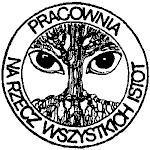
GB No. 2(13)/94
The Workshop for All Beings is a society which was registered in 1990.
As expressed in its statute, the Workshop is an association of people united in order to
act for the good of nature, to promote responsible patterns of life and education which
would help to maintain the natural and cultural environment at a high standard. The
Workshop espouses the philosophy of deep ecology (so-named by the Norwegian professor Arne
Naess) -- a philosophy which rejects divisive anthropocentrism and which looks to
traditions of the earth's indivisibility.

The Workshop is a society open to everyone who wants to defend nature - animals, plants, and the natural environment. It is a collective, grass roots organisation, independent of state institutions, whether political or religious. Its members are adults of all ages, from Poland and from other countries. The society works and maintains contact with many foreign environmental organisations with similar aims, such as Lesoochranarske zoskupenie VLK, Native Forest Network, I.E.B., Earth First!, Rainforest Information Centre, WWF, Greenpeace, etc.
What are the aims of the Workshop? According to its statute, the aims of the Workshop are the preservation, protection and regeneration of the natural environment; self-education work aiming to bridge the divisions which result from a non-comprehensive and mechanistic view of the world; work towards full self-realisation of human potential, together with all the resources of nature (hence the name "Workshop for All Beings"); professional help and advice in various aspects of environmental protection; and widely-defined, pro-environmental educational activity.
How does the Workshop realise its aims? The Workshop disseminates information about deep ecology and environmental issues through lectures, talks, films, and exhibitions; through participation in seminars; and through occasional publications and the magazine Wild Life which the Workshop puts out.
The Workshop holds educational workshops up to 2 1/2 days long every month (Assemblies of All Beings and LAS workshops) in the "Ecological Park" in the Wapienica valley and in other places. In addition, the Workshop organises rituals and ceremonies which enable participants to express their links with all the life of the planet.
The Workshop also runs campaigns, including the "Wild is beautiful" campaign in defense of Polish beasts of prey (wolf, lynx, mountain-cock, etc.) and their habitats, which has brought positive results in many provinces; a campaign to defend mountain areas on Mt. Pilsko and in the Tatras from the expansion of downhill skiing (for which they published the brochure "White Madness"); a campaign to protect the Narew River valley near Łomża; a campaign to protect peatbogs; and a campaign to raise awareness of the need to preserve trees in fields. We have organized campaigns to defend the Białowieża Forest from intensive forestry, and to protect the Bieszczady. The Workshop also actively participates in international campaigns. It is a member of the EarthAction Alert initiative, writing petitions, collecting signatures, organising pickets, charity concerts, and other similar types of activity, and even - as in the case of the tropical rainforests in Ecuador - collecting money to buy the forest for the biosphere reserve which is being created.
As a result of invitations from the Workshop, many famous people involved in ecological movements and organisations visit Poland, including John Seed - The Director of the Tropical Forest Centre; Patrick Anderson - responsible for forests within Greenpeace; Arne Naess - the creator of deep ecology; Bill Moyer - the famous American publicist and sociologist and a former friend of Martin Luther King.
The musical expression of the Workshop comes from the singer and writer of pro-ecological songs, Agata Jalynska, whose work is inspired by the workshops of the Assembly of All Beings, as well as from the ATMAN theatre of sound, well-known from recordings and television performances.
The Workshop for All Beings
ul. Modrzewskiego 29/3
43-300 Bielsko-Biała
tel. 48/30/73153, 29496, 77241
The ECOBALTIC Foundation is a non-profit, non-governmental organization established in 1988. The overall mission of the ECOBALTIC Foundation is to improve the environmental quality of the Baltic Sea region through the promotion of ecological consciousness, applied research, and public awareness and environmental education (PA & EE).
The Foundation achieves these goals through:
The ECOBALTIC Foundation understands that solutions to Baltic environmental problems do not just apply to Poland, but to the entire Baltic Sea region. For this reason, the ECOBALTIC Foundation is an active member of the international environmental networks Coalition Clean Baltic (CCB) and European Union for Coastal Conservation. It is also involved in activities of Keep Baltic Tidy. The Foundation believes that solutions to environmental problems can only be achieved through increased international cooperation, support, and communication.
The ECOBALTIC Foundation participates in several cooperative activities in the Baltic region. It is actively involved in CCB's efforts with the HELCOM (Helsinki Commission) PITF Public Awareness and Environmental Education Working Group. In addition, the ECOBALTIC Foundation is cooperating with the FOLKCENTER of Renewable Energy in Denmark to disseminate information about alternative sources of energy for small- and medium-sized industries, through publications, workshops, and lectures.
Although the ECOBALTIC Foundation is actively involved in international campaigns, it focuses on disseminating information locally to the public and to local officials and decision makers. To this end, the Foundation has been very active in the promotion of ecological consciousness through their PA & EE activities for the Tri-Cities region of Gdańsk, Gdynia, and Sopot. The ECOBALTIC Foundation has attempted to achieve this goal through direct action, such as environmental clean-ups and information campaigns. For example, the Foundation organized and implemented the extremely successful Earth Day Tri-Cities Beach Clean-up events during the past two years. The ECOBALTIC Foundation, in cooperation with Keep Baltic Tidy member organizations, is planning to coordinate next year's Beach Clean-up into a Baltic-wide activity to increase public awareness and participation regarding Baltic pollution issues. The Foundation also organized an environmental awareness program for the 1993 Energy of Arts Festival in Gniewino County, Poland. In September '94 the Foundation will implement an anti-phosphates campaign for the Tri-Cities region. The campaign will focus on disseminating phosphate concentrations in household detergents sold locally and their potential impact on the Baltic Sea. In addition to basic information transfer, the ECOBALTIC Foundation hopes that this campaign will educate the public about its new found purchasing power in the recently created market economy. The Foundation's intentions are to direct this decision making power into avenues of ecological consciousness.
The ECOBALTIC Foundation also attempts to increase ecological consciousness through organizing workshops and courses for the public, for local officials, and for NGOs. These activities have focused on (1) institutional strengthening and capacity building for NGO managers and representatives, (2) improving and facilitating assistance in the field of water and wastewater management for local representatives of municipal offices and NGOs, and (3) training programs on alternative means of energy production and wastewater treatment for local governments.
The ECOBALTIC Foundation is involved in the promotion of nature protection and scientific research in the Tri-Cities region. The Foundation is currently assisting with efforts to protect Baltic Sea biodiversity through the creation of an underwater extension of the Słupsk Bank National Park (along with other open water Polish coastal areas), and supervising a study on "Alternative Methods of Reducing Pollution Loads Discharged to the Baltic Sea from Littoral Catchment Areas."
Finally, the ECOBALTIC Foundation understands that an ecologically aware public
requires constant access to current environmental information. Therefore, the ECOBALTIC
Foundation publishes the monthly magazine EKOBAŁTYK. This magazine focuses on
issues and factors that effect the Polish Baltic Sea environment, and is an important
medium for the dissemination of current information to the general public.

Peter Leinenbach
Peace Corps Volunteer
ECOBALTIC Foundation
ul. Jakowa Dolina 76
80-286 Gdańsk
tel./fax 410082
The Polish Society for Nature Protection (Polskie Towarzystwo Ochrony Przyrody or PTOP)"Salamandra" is a non-governmental environmental organization dedicated to wildlife conservation. Its purpose is to protect rare and endangered species of plants and animals as well as biologically important habitat.
"Salamandra" projects fall into three main areas: research, nature protection, and education. The first area of activity, scientific research, is critical to learning about protected species or areas, to understanding the threats to them, and to determining the best method of protection. Nature protection is the second area in which "Salamandra" works. Projects include "passive" protection, such as the establishment of reserves, as well as active restoration of habitat and breeding/reintroduction of endangered species. Last but not least, "Salamandra" is involved in educating people about the areas and species they are working to protect. Their goal is to raise the level of biological and ecological knowledge in society and to help people to develop more environmentally-friendly behaviours.
In Poland, as in all of Central and Eastern Europe, many environmental NGOs have been formed -- and many are still being formed. Most of these NGOs, however, are concerned with problems that are strictly related to human beings, such as air/water pollution or waste disposal. Few NGOs are working directly to preserve biodiversity. "Salamandra" aims to fill this niche.
The strongest point of "Salamandra" is the people involved. The Society consists of a group of dedicated young biologists with different areas of expertise as well as some specialists in other fields. Most of them have had several years' experience working in different foundations, organizations, or institutions concerned with environmental protection. They are energetic, enthusiastic, and extremely committed to saving Poland's rich natural heritage.
The first big project of the PTOP "Salamandra" is the management and protection of the Morasko Meteorite reserve in Poznań. This reserve covers a group of seven meteorite craters, the second largest in Europe and the seventh largest in the world. In addition to its value as a rare landscape, the reserve is noted for its unique tree stands and is home to a number of endangered plant species. Because it is located near some big new housing complexes, however, the reserve is threatened with uncontrolled visitation and, as a consequence, with devastation. Biologists from "Salamandra" are taking an inventory of the flora and fauna present in the reserve, and they are working on a self-guided educational nature trail, a map and a system of trails which will steer visitors away from sensitive areas, and a guidebook about the history and nature of the area. Recently, they have been organizing clean-up events to remove trash which has been dumped in the reserve. Their aim is to involve local people, the academic community, and Poznań authorities.
In addition to this, the PTOP "Salamandra" is active in projects to protect amphibians and the European pond turtle in Poland. Other projects include surveys of hibernating bats and studies of cave flora and fauna.
PTOP "Salamandra" grew out of the Student Ecological Club at Adam Mickiewicz University in Poznań. Besides doing research on plants and animals in different regions of Poland, the students organized a paper collection for recycling and ran a campaign to extend bicycle paths in Poznań. They published a bulletin and organized a series of lectures on protected plants and animals. After finishing their studies, several members of the organization decided to continue their activity. This is why the Polish Society for Nature Protection "Salamandra" was formed. The Society was officially registered on October 11, 1993, although the organizational work began much earlier. Members took part in courses for leaders of NGOs in Poland and abroad (Sweden, Germany, and the United States).
The Society's organizational structure and the methods of work and fundraising are based on those of similar Western organizations, adapted to conditions specific to Poland. Most of the work is done by professionals. Only during certain campaigns will they recruit volunteers to help. All of this will be possible only with a large membership base. Membership fees plus additional contributions from members and donations from local businesses and local government will be their main sources of funding. They do not want to rely on Western foundations for financial support as is currently common practice in much of Central and Eastern Europe. Those interested in membership should contact Andrzej Kepel at the following address.
PTOP "Salamandra"
ul. Umultowska 100/42
60-614 Poznań
tel. 48/61/485 704
The "SILESIA" Ecological Foundation was established in 1989 in response to growing environmental deterioration in Poland, especially in Upper Silesia. "SILESIA" is involved in developing an exchange of information related to environmental protection and management between the Katowice voivodeship, other regions of Poland, and other countries. "SILESIA" cooperates with other environmental organizations and institutions as well as with the mass media to promote environmental protection. Environmental education is an important aspect of the "SILESIA" Foundation's work. It puts out booklets and videos which are supplied free of charge or at low prices to environmental groups. A video library has been in operation since 1992. "SILESIA" organizes environmental training courses for individuals, local authorities, and representatives of industry.
In order to encourage public participation in environmental issues, "SILESIA"
organizes contests for the best master's degree work and the best ecological club,
promotes the action "Plant Your Tree," and fosters ecological initiatives
arising in schools, universities, and organizations. Many of the "SILESIA"
Foundation's publications and films are designed to encourage individuals and
organizations to deal with environmental issues. "SILESIA" also works on
creating financial and legal conditions so that new solutions to environmental problems
can be implemented. One of the "SILESIA" Foundation's projects was an
"Autocatalyst" action aimed at reducing the harmful effects of traffic exhaust
gases. Together with "Trybuna Œląska," "SILESIA" annually awards
a prize for the best environmental achievement in Silesia. Finally, the Foundation's
Consulting and Service Office offers technical analyses for local authorities,
environmental impact assessments and damage assessments, trainings, applications of
bio-active reagents for pretreatment, organization of biddings for ecological investments,
property valuations, and translations of technical texts.
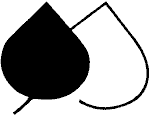
"SILESIA" Foundation
Pocztowa 16
Katowice
tel. 48/32/539318
fax 48/32/537068
Bank ¦l±ski VII o/Katowice
Account number: 312608-9380-132-3
For several years, the PRO-VITA Socio-Ecological Society in Katowice has been interested in Silesian mining, which severely harms the natural environment and causes direct economic losses as a result of uneven settling of land after cave-ins of abandoned galleries in coal mines. The average subsidence is in the range of 0.5 to 1.5 meters, but in some cases the land sinks 15 to 18 meters!
Coal and copper exploitation in southern and south-western Poland can have severe seismic effects. It is especially dangerous to buildings. The last natural earthquake was in Krynica on June 29, 1992, and exceeded 4.6 on the Richter scale. In recent decades, mine quakes in the Bytom region (19 quakes, E = 3x109 J) damaged about 300 buildings every time. The most tragic mine quake was in the Legnica-Głowgów copper mining region, where a 1x1010 J-energy quake destroyed an eleven-story building in Polkowice.
PRO-VITA foresees that as a consequence of quick and deep exploitation (about 1500 m at present), the quake menace will rise. PRO-VITA's Andrzej Kaniak, M.Sc. Eng., is conducting a scientific study together with the Silesian Technical University at Gliwice and the Main Mining Institute in Katowice. They are trying to predict the parameters of acceleration of the ground vibrations for a given seismic energy shock for all the mining regions of Poland. They want to calculate what level of seismic energy may be dangerous for objects at the surface. Then they hope to design a high damping rubber isolation system, such as a teflon coated stainless steel flat ring with a rubber core.
The Ministry of Building says that PRO-VITA has influence on the course of building development in Lower and Upper Silesian mining regions. PRO-VITA is trying to obtain funding for a scientific program "New structural antiseismic housebuilding program on southern mining regions of Poland" from the mining and building sectors.
PRO-VITA hopes to begin production of small-size building materials (like bricks and tiles) using slate and mining scraps. They have adequate technology -- and materials. One by-product of Silesian industry is the roughly 100,000 tonnes of solid waste produced per year -- 25% of which is stored at 260 tips. The amount of solid waste already accumulated has reached 1,500-2,000 million tonnes covering 6,000 hectares. Most of the solid waste is produced in the coal mining process. PRO-VITA wants to put this waste to a practical application. Till now, the methods of producing building materials have been based mainly on raw materials occuring naturally. The essence of producing from overheated shale is eliminating clays and sand and replacing them with the waste resulting from coal processing. This technology is not wasteful and saves the most material and energy. The additional advantage is the removal of burdensome mine-heaps and power-plant wastes. This is of great importance for land reclamation and environmental protection.
Construction engineering in the mining regions of Upper Silesia involves more than just counteracting foundation subsidence or ground shock effects. It is also a question of water loss from multiple mining operations or dangerous irrigation, which causes changes in the ground's resistance. Rock mass movements can alter the angle of inclination of waterlines, sewage pipes, gas lines, electrical wiring, and the heat distribution network, which could have devastating effects. Finally, many years of acid rain have accelerated the corrosion of roof gutters and drain-pipes, roofs, and walls. These are the types of issues that PRO-VITA addresses.
Społeczne Towarzystwo Ekologiczne PRO-VITA
Al. 3 Maja 26, Katowice
tel. 48/32/537-035, 538-405
The program of the "Holi-Eco-Art" Center of Holistic Culture is based on a holistic conception of matter, nature, and the social world -- in other words, the theory of unity.
The idea of holistic culture is based on the theory that approaching new collective structures of social life is possible only through individual personality whereas socio-cultural transformation follows the change of an individual. This principle carries with it specific treatments of the sanctioned culture, especially cultural indoctrination that causes the acquisition of rules and standards. Neither a teacher nor a culture creates a human being. They don't instill in him or her the ability to live, creativity, truth, relilgious sentiment, and aesthetic sense. They rather allow and help, or stimulate and encourage, the realization of something that exists in the human being in embryo. Modern psychology claims that man is a unique, integral unit that cannot be reduced to particular elements as reactions, thoughts, or emotions. Progress -- conditioned by some internal factors -- is a basic feature of human nature. Forces determining its course are placed inside man, not outside him/her. An aspiration of self-realization and actualization of one's potential is the main tendency that influences human activity. In the conditions of our contemporary culture a person cannot always develop freely and harmoniously using his or her real potential. Hostile and tense interpersonal relationships, old-fashioned methods of teaching and upbringing, inconsequent cultural models, and false self-images make it difficult to create an authentic person very often. In drastic cases, they cause obstruction of the mechanisms of life and contribute to establishing a personality that functions only automatically in culture while supplying psychiatric hospitals with patients, increasing suicides, and prompting different forms of escapism, from drug addiction to alcoholism and other forms of social deviation.
In our center we want to create a place and time to secure conditions for the process of self-realization. It used to be that human life ran according to a script written somewhere in advance. At one time profession, religion, philosophy of life, and even personal interests were established once and for all, in accordance with family status and the place where we were born. Nowadays man has got more and more opportunities. Choosing what is our own and what is authentic we have become the creators of our personal and unique way of life.
The aim of our center is to popularize and propagate a concept of man and culture based on a holistic philosophy. By stressing the unique character of each individual we want to give to everyone the possibility of experiencing the artist inside themselves: the creator of oneself and the surrounding world. We concentrate on the unity of the mind, soul, and spirit. Our activity is oriented towards broad-minded people who are willing to get to know their internal creative potential, ready for self-discovery, and eager to make the spiritual contact present in each individual and each element of nature. We are interested in deep ecology, art, religion, the spirituality of other cultures, human health, healthy diets, love, and many more issues. In our center we want to start activities that may inspire one to self-development and self-realization. We want to achieve a holistic vision of a culture in which an inner-cohesive individual will be able to emphasize with the world of people, animals, plants, the universe, and the absolute. Selecting our means and methods we follow the principle of resilience. The main criterion is our reaction to the needs and interests of our participants.
After fulfilling our previous program (since April 1992) we are pleased to state that the request for such activities is unexpectedly high and appears to be rising.
For this reason our work consists of such trends of contemporary culture as
Approximately 500 people every month avail themselves of what our center has to offer. There are several permanent meetings and courses: Tai-Chi chuan, Yoga (from relaxation to meditation), meetings of a vegetarian club, psychological trainings, ecological meetings, and humanistic astrology. The center offers lectures on rebirthing, ecology, psychology, philosophy, and religion. We organize concerts of music inspired by meditation and ecology. There were some eco-games realized for young people within the "Summer in the Skansen" event in August. Last year in November the center organized a two-day training called "Therapy through moving" during the Festival of Special Arts. We cooperate with some social movements, local and foreign societies, school and academic clubs, individuals interested in popularizing the center's ideas, and potential sponsors.
However, the above description of our current activities is not necessarily an indication of the future directions of the development of the center. We are open to constant, unrestricted evolution,so we ask everyone to join our work.
Józef Blacha
Górnoslaska Macierz Kultury
pl. Sejmu Sl. 2
Katowice, POLAND
tel. 48/3/155 41 16, 48/3/155 38 06
The Ecology and Health Foundation is a non-profit, non-government organization devoted to studying and disseminating information on environmental threats to human health. The Foundation publishes The Ecology and Health Information Bulletin as well as various brochures dealing with environmental threats to health. Work is underway on a book on lake conservation, intended for tourists and scout instructors. Right now the Foundation is involved in the creation of a Center of Information and Consultation on Environmental Threats to Health, a project sponsored by the Regional Environmental Center in Budapest. This independent information center will provide information to local authorities, entrepreneurs, and social organizations. The Center will also seek to influence national political decision makers and local communities (by preparing information for the local press, for example). They are currently compiling data bases on environmental threats to health, on the toxic properties of various chemicals, and on the chemical and trade names of the substances. They are gathering scientific literature and establishing contacts with numerous experts.
The Foundation has been conducting a study on blood lead levels in Warsaw children. The initial results of the study show that the lead contamination problem for children in Warsaw is not as serious as anticipated. Another study involved health threats related to garden plots situated on a former landfill in Prudnik in Southern Poland. The study found that the landfill was not properly controlled by local authorities, and industrial wastes (including hazardous wastes) were deposited in an uncontrolled way. The landfill was never properly prepared for later use. Soil, vegetables, and fruits from the plots were found to contain heavy metals in concentrations many times exceeding the acceptable limits. Simple organochloride compounds (proven carcinogens) were also found in the soil and the produce. As a result of the study, the contamination problem and cases of lethal accidents resulting from the contamination have been publicized in the local press, and the owners of the garden plots have been discouraged from growing vegetables and fruits in their gardens.
Another project of the E & H Foundation is to organize a conference on the threats posed by chlorine. Recently, environmental organizations from many countries (including Greenpeace) have been expressing concern about the threats to human health caused by the production, transportation, and use of chlorine as well as the use of organochlorines such as PCVs and pesticides, including the dioxin and furans which result from various chemical and combustion processes. However, very little is known about the seriousness of this problem in Poland. In response to the lack of information, the Foundation, together with the Polish Toxicological Association, has decided to organize a conference. This calls for a lot of preparation and a careful examination of the present situation in Polish industry -- a difficult task.
Future activities of the Foundation will include an examination of the sources of cadmium emission into the natural environment (cadmium is generally thought to be one of the most serious environmental threats to health in Poland); a study of the threats posed by lead in paint in Poland; a study of the threats posed by lead contamination from industrial sources in Warsaw; a study of the effects of using chlorine as a bleaching agent for paper pulp in paper mills; and a study on PCBs in oil.
Finally, the Foundation is keeping an eye on the alarming
tendency of various government bodies towards developing their own structures in areas
which, in other countries, are the domain of non-governmental organizations. In addition,
unclear regulations are causing a worrying increase in the number of
pseudo-non-governmental organizations created by government institutions and funded
through public funds. It is worth noting that foundations and associations in Poland may
undertake economic activity. The legal status of all these organizations is identical
according to Polish law. This situation is likely to give rise to many irregularities. In
order to oppose these practices, the E & H Foundation plans to organize an agreement
of environmental organizations acting for the sake of human health.
 Ecology & Health
Ecology & Health
Ecology & Health Foundation
Grójecka 128, pav. 53
02-383 Warsaw, POLAND
tel. 48/2/659 70 41 ext. 31
fax 48/2/659 78 28

was created in Kraków in 1989. Its
statutory goal is to act to improve the environment. This goal is realised through
environmental education and through support to non- governmental environmental organi-
sations.
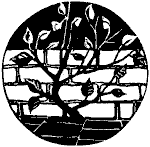
The Foundation is a partner of numerous Polish and foreign organisations and institutions active in the environmental protection field. The Foundation's partners include: the German Marshall Fund -- Environmental Partnership for Central and Eastern Europe, the Regional Environmental Centre for Central and Eastern Europe, Greenpeace International, Milieukontakt Oost- Europa, Milieu Defensie (Friends of the Earth -- Holland), Natuur en Milieu Overijssel, the Polish National Fund for Environment Protection, and the Youth and Children Foundation.
The Foundation services (among others) the Kraków Group of the Green Federation, the Students' Regional Group of Nature Rangers, the Regional Environmental Education Centre, Malopolska -- Overijssel Inter-regional Environmental Co-operation, the "Green Brigades" Publishing House, the "Greenland" Environmental Association for Małopolska, and various projects carried out by these groups.
"10% LESS Waste in Kraków" -- a campaign aimed at limiting the amount of waste reaching the landfills through promotion of reusable packaging, waste segregation, and recycling. The campaign is carried out by the Kraków Group of the Green Federation and the Regional Environmental Education Centre. The project, apart from its educational segment, consists of pilot waste segregation projects in some Kraków districts and schools.
"Kraków -- the cycling city" is a campaign aimed at limiting pollution as well as energy and space consumption caused by motorised traffic. The campaign is focused on pressuring the authorities to build a bicycle path network and on educating people to use bicycles instead of cars.
The "Environmental education" project, based on Dutch models, consists of preparing educational curricula on certain environmental science topics. So far, the "Weather," "Waste," and "Water" packets have been produced. The "Transportation" packet will follow soon. Apart from written material, the packets contain all the educational materials needed by both students and teachers.
The "Eastern Carpathian Mountains" project is designed to co-ordinate the work of the non-governmental environmental organisations from the countries of the Carpathian Euroregion. The basic element of this project is the creation of an information network and a common news bulletin, Grasshopper.
The "Western Malopolska Region" project is a project similar to the one above. Its aim is the co-ordination of environmental groups from the Western Malopolska region.
"Green Brigades" publishing house activities include the Polish language monthly Zielone Brygady and the English language quarterly Green Brigades. These publications deal with environmental activities, vegetarianism, animals, human rights, and equal rights for minorities and other groups facing discrimination. It has been in print since 1989 and serves as the basic means for the exchange of information for environmental groups throughout Poland and for presenting the environmental problems of Poland abroad.
The Foundation for the Support of Ecological Initiatives, thanks to many years of co-operation with professional environmental organisations and to knowledge of the local, grassroots environmental initiatives, transfers knowledge and skills to those who can use them in the best way. The Foundation supports environmental initiatives with technical aid, offering office space, telephone, fax, e-mail, computers, and copiers.
The Foundation is entitled to conduct commercial activity, but at present it is focusing on projects financed by other, bigger foundations with similar goals. The Foundation either financially supports the projects of the environmental groups with which it co-operates or helps them in raising funds from other sources.
The Foundation for the Support of Ecological Initiatives
ul. Sławkowska 12
31-014 Kraków, POLAND
tel./fax: 48/12/22 22 64
tel.: 48/12/22 21 47 ext. 10, 15
e-mail: zb@zb.most.org.pl
Bank account: BPH IV O/Kraków
nr 323415-707156-132-3
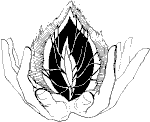
At the same address also may be found:
ECEAT-Poland (the European Centre for Eco-Agro Tourism, Poland branch) started its activities last summer and will continue this year to organize accommodation possibilities on ecological farms. Ninety farms throughout Poland (of which 53 have the EKOLAND certificate) are participating in the program to invite people from Poland and abroad to stay for some months or the whole year round. These farms are situated in the most beautiful parts of Poland, in different regions. People can enjoy nature, farm-life, and healthy food, as well as the activities that are offered in the surroundings. Sometimes people can help with the work on the farm.
For the farmers this kind of tourism means an additional source of income, not only from the visitors, but from the opening of new markets for their farm's products. It is also a stimulus for the farmers to be more environmentally friendly. Ecological farmers in Poland often run their farms in this specific way because they love the idea. But since the local market still does not show enough appreciation, ecological farmers miss the extra income and are likely to lose their self confidence. So the idea of having visitors has a balancing effect. The farmers learn how the beauty of their farms and the natural surroundings and the fresh healthy food are valued by the tourists. It encourages farmers to become more active and creative on their own farms and in the project.
ECEAT-Poland is an NGO, independent of any political or commercial interest groups. It was founded by representatives of the environmental movement, the organic agricultural movement, and the eco-tourism sector. ECEAT-Poland cooperates with EKOLAND, which is a member of the International Federation of Organic Agriculture Movements (IFOAM).
By promoting tourism on ecological farms, ECEAT stimulates and supports sustainable agriculture. Last year the project was promoted mainly in the Netherlands, but this year it is also being promoted in Germany, Belgium, and Poland.
In general, one can see a tendency for people to want more natural and healthy
products, including the way they spend their holidays. In addition, in recent years people
are interested in more active holidays. The possibilities for traveling to Poland are very
new. For these reasons and because of the fact that both the farmers and the visitors were
very enthusiastic about the project last year, the project promises to be a success again
this year.
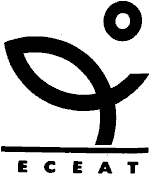
ECEAT-Poland kindly welcomes you
to spend your holiday on its ecological farms!
ECEAT-Poland
ul. Skalna 1
58-573 Piechowice
POLAND
tel. 48/75/53309
The National Society for the Promotion of Healthy Food (Krajowe Towarzystwo Propagowania Zdrowej Zywnosci) was established in Tarnów in 1987. It is the only organization of its kind in Poland. Every year the Society organizes a National Health Food Fair and a National Healthy Life Fair. It grants the "Healthy Food" sign and publishes the magazine Healthy Food -- Healthy Life Style. The Society promotes health food production in Poland, propagates organic agriculture, and popularizes a healthy life style.
KTPZZ
ul. Czerwonych Klonów 12
skr. poczt. 62
33-101 Tarnów, POLAND
tel. 48/14/33 09 94
Modern organic agriculture in Poland dates back to before the Second World War. In 1930, Count Stanislaw Karlowski introduced the bio-dynamic method of farming on his 1760-ha estate in Szelejewo (Poznań province). He did much to disseminate the idea in Poland, establishing a working group of farmers and gardners, conducting many one-day courses on his estate, and publishing booklets. On the scientific front, Prof. Bronislaw Niklewski published from 1928 to 1933 several valuable papers on humus and manure composting. After a long uneventful period, in 1960 Julian Osetek started a three-hectare bio-dynamic farm in Nakło, and ran it alone for many years. By the 1980's the concept of alternative farming was being promoted regularly in Poland at lectures and meetings. Five seminars on biodynamic methods, given by German experts in the period 1984-89, played a major role. Then, after 7 years of promotion by Prof. Mieczyslaw Górny and other leading academic figures, EKOLAND -- the Association of Ecological Food Producers -- was created and officially registered on September 1, 1989.
The EKOLAND Association is the first Polish organization applying international standards of organic agriculture (originating from IFOAM basic standards) in the certification of farms and their products. In 1990, EKOLAND first began the procedure and that year issued 27 certificates for a 300 ha total area. In 1993 the number of certified farms was 174 for a total area of 2000 ha.
To disseminate the concept of ecological food production, in 1991 EKOLAND organized five regional information centers, with support of the German H. Böll Foundation. Additional centers are planned, with the aim of giving more farmers and consumers access to basic information. Part of this project also includes publishing books and booklets (7 titles have been published to date). Thanks to the aid of the Swiss Association for West-East Cooperation in Biological Agriculture (SVWO), the training of EKOLAND's 30 professional advisors began in 1991. A comparative study on conventional vs. organic farming has been underway since 1992, in cooperation with the Michael Fields Research Institute (Wisconsin, USA). The project East-West Dialogue on Ecological Agriculture, initiated by the German Foundation Leben und Umwelt (simultaneously in the Czech Republic, Hungary, and Poland) has already put out one (1993) of three planned yearbooks on organic agriculture.
For a long time there was no official interest in the organic movement. Only in 1992 did the situation change: the agricultural universities and high schools, advisory officers, and journalists began to investigate the concept. The governmental program "Prospects for rural development and agriculture" includes a recommendation to work out the concept of ecological agriculture.
The concept of ecological agriculture in Poland still needs more clarification and coordination. To help the development of ecological agriculture in Poland the following is needed:
In general, the situation of Polish agriculture is very favorable for ecological
farming practices.
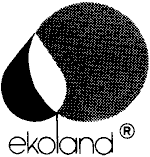
Ursula Soltysiak, Ph.D.
Warsaw Agricultural University
EKOLAND
Przysiek k/Torunia
87 132 Pędzewo, POLAND
tel. 48/856/781915
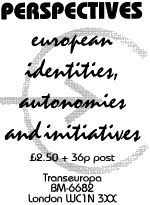
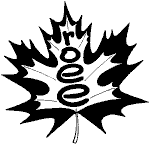
The Regional Environmental Education Centre in Cracow is a non-profit, non-governmental organization, founded on September 4, 1993. Its projects include the following:
The Centre runs a Green Library and make its collection available to all people free of charge. It collects books, magazines, leaflets, posters, photos, slides, data, and video films about nature, nature protection laws, environmental problems, and their solutions from Poland and from abroad. The Centre also keeps a regularly updated database on the contents of environmental magazines.
The Centre prepares its own informational and educational materials (workbooks, slide sets, leaflets, etc.) for teachers, which are used for school lessons and extracurricular activities. It also publishes monthly information about air polution in Cracow.
The Centre prepares environmental education programmes for children from the most polluted areas in Poland. These one or two week programmes are held in the countryside or near national parks.
The Centre runs training courses on environmental education for teachers, students, and NGO members. It specializes in non-conventional methods of education. These methods involve environmental games and education through emotions. This kind of education is still relatively new to Poland.
The Centre is one of 20 regional centres located throughout Poland. This centre coordinates educational activities in the Kraków, Tarnów, and Nowy Sacz voivodeships.
The Centre coordinates two educational programmes which measure acid rain and monitor ozone in schools.
Secondary school students are trained to do environmental education for children.
The Centre cooperates very closely with other environmental organizations and institutions in Poland and abroad. It has many contacts with schools, both primary and secondary. The Centre helps them to implement projects like Earth Day and waste campaigns by providing them with materials and experience.
The Regional Environmental Education Centre works in cooperation with the following organizations and institutions: the Foundation for the Support of Ecological Initiatives in Cracow; the Cracow Group of the Green Federation; the Department of Environmental Protection in the Governor's Office; the Didactic Centre of Ojców National Park; the Voivodeship Center of Education Methodology in Cracow; the Nature Protection Guard; the Youth Forest Action Society; the Environmental Partnership for Central Europe - A Project of the German Marshall Fund of the United States; Małopolska Overijssel - The Interregional Environmental Partnership; and Pieniny National Park.
The Regional Environmental Education Centre is supported by: the Voivodeship Fund for Environmental Protection and Water Management in Cracow; the Department of Environmental Protection in the Governor's Office; the Environmental Partnership for Central Europe - A Project of the German Marshall Fund of the United States; BUND - Hessen, Germany; the Regional Environmental Center - Budapest, Hungary; the Foundation for The Support of Ecological Initiatives in Cracow; and private donors.
You can support the Centre by:
Regionalny O¶rodek Edukacji Ekologicznej
ul. Sławkowska 12
(Oficyna III p.)
31-014 Kraków, POLAND
tel.: 48/12/22 21 47 ext. 9
tel./fax: 48/12/22 22 64
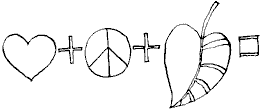
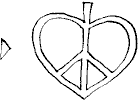
The Kraków Group of Green Federation is one of the 50 groups that constitute the national network of Green Federation member groups. The groups are independent and what they have in common are the "Nasze Zasady" and "Antystatut" ("Our rules" and "Antistatute") documents. The most important decisions are made during the annual Congress. This is also when the Federation charter is annually renewed - by a common decision of all of the Congress participants.
We deal with environment protection and everything that is connected to it. We conduct several campaigns.
The goal of the project is to reduce by 10% the amount of Kraków waste that reaches the landfills. The elements of the campaign are:
We have published the "Colourful containers, or how to solve our waste problem" and "Waste" educational materials. With these, we conduct environmental education at Kraków schools. These materials are also used by teachers in other towns and cities throughout Poland. We have also been collecting waste for recycling in various areas of Kraków including, the Prądnik Czerwony district, the campus and the Wola Justowska district.
Wola Justowska is also the first place in Poland to have started courtyard composting of the organic waste.
Promotion of the reusable packaging is also a part of the "10% less" project.
Considering the environmental dangers and the high price of the technology for
incineration, we also participate in the national anti-incineration campaign.
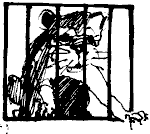
We promote bicycle and public transport in Kraków. Motorised traffic-derived pollution is a major problem in Kraków as well as in other cities. The alternative to the car is the bicycle - a fast, silent and environment friendly means of city transport. In Kraków, a network of cycleways is now under construction. The cycleways, with a little good will from the citizens of Kraków, will solve our city's transport and environment problems.
We conduct a series of meetings at schools to present the campaign. We also organise demonstrations to force the authorities to adopt a more environment-friendly transport policy and to encourage people to use their bicycles instead of cars.
In all Polish cities, there has always been a lack of greenery. In Kraków, this lack of greenery means that the concentration of oxygen is low because there are no trees to turn the carbondioxide into oxygen.
Thus, we are trying with the help of the fellow inhabitants of Kraków, to increase the amount of trees in our city. Our tree planting actions reach apartment complexes as well as huge empty areas with few trees. Kraków schools have also joined our action. We provide with small trees to be planted near their schools.
In addition to these issues, we also deal with animal rights. We make it clear to the
people how much suffering is connected with the animal fur industry. We are active in an
anti - circus campaign. We are against the use of animals in the circus show. We also
support vegetarianism.
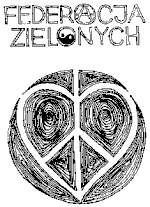
Kraków Group of the Green Federation
ul. Sławkowska 12
31- 014 Kraków
tel./fax: 48/12/222264
tel. 48/12/222147 w. 10
e-mail: zielbryg@gn.apc.org
greenbri@alpin.gn.apc.org
account: PKO I o.Kraków
nr 35510-162434-132